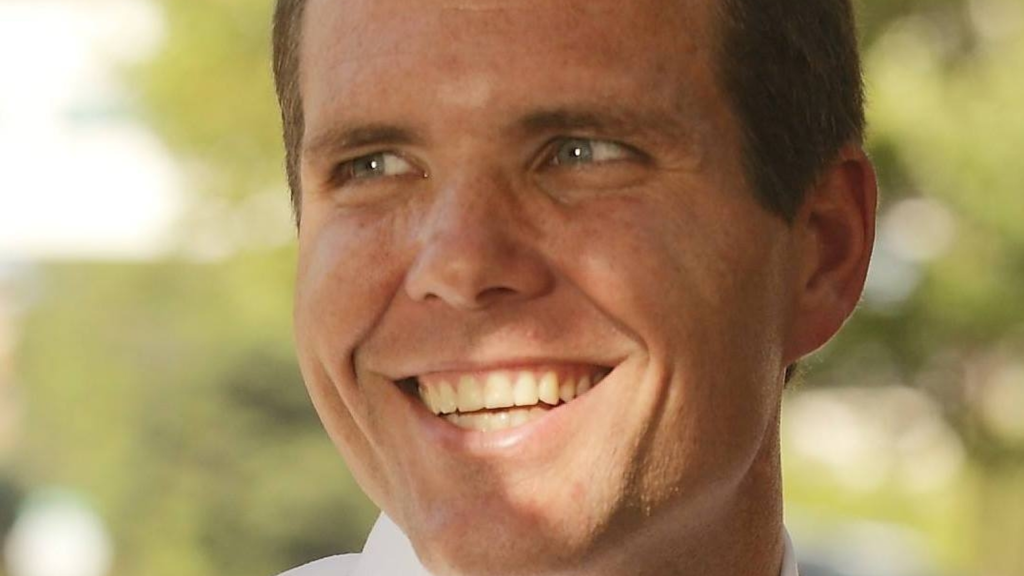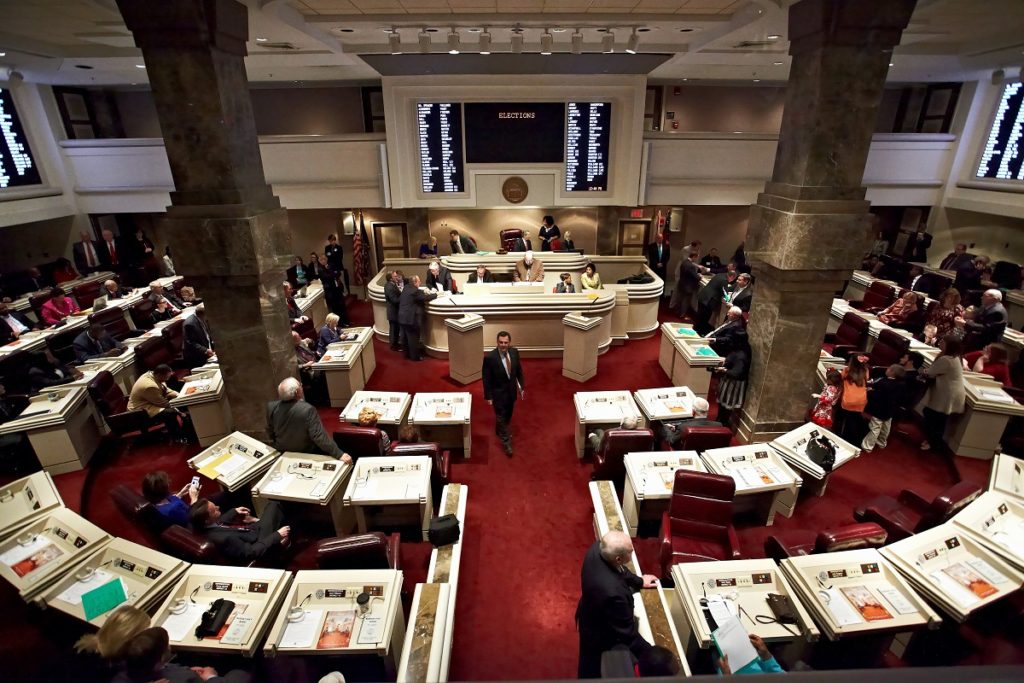Former Sec. of State Nancy Worley hospitalized, ‘gravely ill’

Former Alabama Secretary of State Nancy Worley is being treated for an undisclosed illness and has been admitted to Baptist Medical Center South, WSFA reported. Alabama Democratic Conference (ADC) leader Joe Reed confirmed Worley was “gravely ill” but gave no other details. He sent a letter to the ADC about Worley’s illness and asked for prayers. Worley, 70, served as secretary of state from 2003 to 2007. She lost her re-election in 2006 to Beth Chapman. She went on to serve as chairman of the Alabama Democratic Party from 2013 to 2019. Democratic party chair Chris England stated on Twitter, “We are thinking of Secretary Worley and those close to her tonight. Please join us as we pray for Nancy’s speedy recovery and peace for her friends and family.”
Here’s everyone the Alabama Democratic Conference has endorsed in the 2018 election cycle

The state’s largest and oldest African-American political organization, the Alabama Democratic Conference (ADC), has made its endorsements for the 2018 election cycle. Founded in 1960, the ADC was created to encourage and empower African-American voters. Today, the group is a powerhouse in the state’s Democratic politics. In fact, no gubernatorial candidate has ever won the democratic primary without the endorsement of both ADC and the group New South, since 1960. Here’s everyone the ADC has endorsed in 2018: United State Congress 1st House District : Robert Kennedy Jr. 2nd House District: Tabitha Isner 3rd House District: Mallory Hagan 4th House District: Lee Auman Statewide races Governor: Walt Maddox Secretary of State: Heather Milam Attorney General: Chris Christie State Senate races District 2: Amy Wasyluka District 7: No endorsement District 26: “Coach” David Burkette District 33: Victor Tshombe Crawford State House races District 8: Billy Jackson District 10: No endorsement District 19: Laura Hall District 28: No endorsement District 32: Barbara Bigsby Boyd District 54: Jacqueline Gray Miller District 55: Roderick “Rod” Hampton Scott District 56: Chester W. Porter District 58: Rolanda Hollis District 59: Mary Moore District 60: Juandalynn Givan District 65: Elaine Beech District 67: Prince Chestnut District 69: Kelvin Jamichael Lawrence District 76: D’Linell Finley District 77: Dan Harris Other race Jefferson County District Attorney: Danny Carr
Alabama Democratic Conference endorses Walt Maddox for governor

Longtime Tuscaloosa mayor and Democratic gubernatorial hopeful Walt Maddox on Saturday was endorsed by the Alabama Democratic Conference (ADC). Maddox said he is honored to have the endorsement of the predominantly African-American group. “I’m honored to receive the endorsement of the Alabama Democratic Conference. I’m humbled by the trust and confidence ADC has placed in my campaign for Governor,” said Maddox. “The ADC endorsement is vital if a candidate hopes to have any chance of winning the Democratic primary.” Maddox says no candidate has ever won the democratic primary without the endorsement of ADC and New South, since 1960. “I have been honored to receive the endorsement of many distinguished Alabamians, elected officials, community leaders, unions and political organizations. Today’s endorsement by ADC along with the endorsement we received from New South and those many others place my campaign on a trajectory for victory on June 5,” Maddox concluded.” New South endorsed Maddox last month. Both groups traditionally conduct get-out-the vote efforts for candidates they endorse. In the June 5th Democratic primary, Maddox will face former state Supreme Court Chief Justice Sue Bell Cobb, along with Christopher Countryman, James Fields, Doug Smith and Anthony White. The winner will go on to face the Republican nominee in the general election, to be selected among: Gov. Kay Ivey, Tommy Battle, Bill Hightower, or Scott Dawson.
Steve Flowers: 2018 elections will be one for record books

The much-anticipated 2018 election contests have been pushed back by about three months due to the unanticipated race for Jeff Sessions’ Senate seat. This ongoing contest will occupy the news through late September. It was previously thought that June 6 would be the opening bell since fundraising for next year’s June 5 Primary could begin at that time. However, the bell will probably commence chiming in full force by Labor Day. It will be a year for the record books. The ballot will be so long that it will take most folks 15 minutes to vote. We will have an open governor’s race with at least six to nine viable candidates. That same number of folks will be in the open Lt. Governor’s race. You will have a hotly contested open race for Attorney General. There will be five seats up for election on the state Supreme Court. There will be a fight among two sitting Justices, Tom Parker and Lyn Stuart, for Chief Justice, all Probate Judges, and many Circuit and District Court Judges in the State will be running as well as all 67 Sheriffs. However, the most money will be spent on the 35 State Senate races and 105 State House seats. In recent years, special interest money in Montgomery has gravitated more than ever to legislative races. The 2018 legislative money raising could begin June 6, but the jockeying and final decision-making will be delayed by not only the U.S. Senate race. There is also a large cloud of uncertainty as to how the districts will look when all is said and done by the federal courts. In January a three-judge federal panel struck down the current district maps drawn in 2012. The three federal judges were following precedent sent down from the U.S. Supreme Court. Alabama Democrats led by the Alabama Democratic Conference and the Black Legislative Conference prevailed in what appeared to be a “Hail Mary” suit. They won at the U. S. Supreme Court level. The high tribunal’s decision said that the Alabama Republican legislature had intentionally moved Black voters who overwhelmingly vote Democratic into loaded majority-minority districts that made it difficult to form alliances with like-minded white voters. This new theory embraced by the courts advised that it muted minority voices in the political process. The court is right about that. Democratic Senators and Representatives have been run over repeatedly over the last six years by the Republican majority. They have treated them with irrelevance and irreverence. The courts told the legislature to fix the lines to suit the Court order. The Republicans ignored the Court and ran over the Democrats again in the regular session. All of the black Democrats voted against the plan. The most contentious issue was over local politics. The Republicans’ maps gave Republicans a one-seat advantage in the House and Senate delegations in Jefferson County. They brought in GOP legislators who live in the suburbs surrounding Birmingham to give them a majority in the demographically Democratic County. The Courts were essentially ignored in favor of politics. The GOP supermajority continued to use the whip handle with the Democrats. However, they are not holding the cards in this poker game. When the Court hears the case in September, the GOP plan will be discarded. The court may wind up drawing the new districts that legislators run under in 2018. The last time the courts drew the lines was in 1983. In that case, the judges sent the demographics and judicial requirements to cartography experts in New York and they fed them into a computer. The Court ordered computer drawn districts that had no regard for county line boundaries or political enclaves, much less protecting incumbents. Several GOP legislators may wake up one morning in October and see that the Courts have put them in the same districts. Therefore, most lobbyists and special interests are keeping their powder dry. They will probably not be doling out large legislative donations until qualifying time around the first of the year. The most hotly contested state Senate race will be for the Dick Brewbaker seat in the Montgomery River Region. Brewbaker is not running for re-election. Most insiders expect Senator Harri Ann Smith to retire from her Houston/Geneva Wiregrass seat. Regardless, popular Dothan mayor, Mike Schmitz, is not running for a third term as mayor and is expected to run for that State Senate seat. We will see. See you next week. ___ Steve Flowers is Alabama’s leading political columnist. His weekly column appears in over 60 Alabama newspapers. He served 16 years in the state Legislature. Steve may be reached at www.steveflowers.us.
U.S. Supreme Court declines to hear challenge to Alabama campaign law

The U.S. Supreme Court on Monday said they won’t hear a challenge to Alabama’s ban on the transfer of campaign contributions between political action committees (PAC). The decision left in place a lower court ruling that upheld a 2010 campaign law. In 2010, the Alabama State Legislature passed legislation, which then Gov. Bob Riley signed into law, that banned transfers of funds from one PAC to another. Known as a PAC-to-PAC transfer, PACs often used the tactic to hide the source of money given to individual candidates or groups. The Alabama Democratic Conference (ADC), one of the state’s largest and oldest predominantly African-American political organizations, challenged the law on the grounds that banning PAC-to-PAC transfers infringed upon free speech and due process. In September 2016, the 11th Circuit appeals court ruled that the 2010 law does not unconstitutionally restrict political speech and that it serves as a legitimate means to prevent corruption.
Steve Flowers: Trying times for Alabama Legislature

This third year of the quadrennium Regular Session of the legislature has recently gotten a lot more complex. These next four months will be trying times for the Alabama Legislature. They will not only have to deal with a beleaguered General Fund Budget that has to feed a money-eating monster named Medicaid, they have an overcrowding problem in the state prisons to deal with as well as major public school systems being taken over by the state because of mismanagement and underfunding. They now have been dealt a body blow that affects their own backyards. They will have to draw new legislative lines that will need to be in effect by June because legislative elections essentially begin this June. The primaries for 2018 political offices will be held in early June next year. All 105 House seats and all 35 Senate seats are up for election. The bell rings this June 6 for all state races to begin raising money. Folks, money is the mother’s milk of politics. It usually determines who wins a race. Campaign money equates into name identification and in most legislative races it really boils down to name identification. Therefore, they will covertly make dealing with this reapportionment wrench a paramount priority. Almost five years ago, a lawsuit, which appeared at the time to be a perfunctory Hail Mary, was brought by the Alabama Legislative Black Caucus and the Alabama Democratic Conference. At the time it seemed like a vague and nebulous concept of a case. The Legislative Black Caucus and ADC argued that the Republican-controlled Legislature drew lines that moved black voters who vote Democratic into overwhelmingly populated black districts that prohibited them from forming alliances with like-minded white voters. The crux of the case, is that it diluted their influence in the legislature. The case surprisingly meandered through the courts all the way to the U.S. Supreme Court. The Supreme Court broke new ground when it even heard the case and set new precedent with its ruling. Prior to this, the Supreme Court had held a state legislature could draw lines along political paths as long as it did not discriminate against black voters. The case was remanded back to the 11th Circuit to seek a remedy. The Supreme Court sets the law. The federal judges in Alabama had to decide how to implement the ruling. When you look at the districts there is no question that the lines were drawn politically to put all black voters into almost all black districts to be represented by black Senators or black Representatives. This stacking also placed most whites in almost all white districts represented by white Senators and white Representatives. The federal judges ruled January 20, Inauguration Day, that 12 districts in Alabama must be redrawn in order to comply with the U.S. Supreme Court decision. The 2 to 1 majority of U.S. Federal Judges Keith Watkins and Bill Pryor ruled that only 12 districts were stacked. U.S. District Judge Myron Thompson wrote that he would have found 12 more districts unconstitutional. Regardless of whether 12 or 24 of the districts are out of sync, the legislative districts will have to be redrawn. When you tinker with even one district it affects the whole map. There is a ripple effect which will require redrawing most if not all of the districts in both the Senate and the House. However, the bottom line is that most of the districts in the state will change very little and more importantly it will not change the party makeup of the Legislature. You will probably have the same overwhelming Republican super majority in both chambers of the state Legislature. In Alabama politics, essentially whites are Republicans and blacks are Democrats. There is very little deviation. Therefore, the redistricting will have minimal or no partisan effect. However, long-term it lays the foundation for a possible future coalition between black Democrats and moderate Republicans to bridge a bipartisan coalition leadership. See you next week. ___ Steve Flowers is Alabama’s leading political columnist. His weekly column appears in over 60 Alabama newspapers. He served 16 years in the state Legislature. Steve may be reached at www.steveflowers.us.
11th Circuit upholds Alabama PAC transfer ban

A federal appeals court has upheld the constitutionality of Alabama’s campaign law, which bans the transfer of campaign contributions between one political action committee (PAC) to another. On Tuesday, the 11th U.S. Circuit Court of Appeals upheld the lower federal court ruling that the 2010 law is not an unconstitutional prohibition on free political speech. The court said Alabama has a sufficiently important issue in preventing corruption or the appearance of corruption, that the PAC-to-PAC transfer ban supports this interest. Alabama Attorney General Luther Strange hailed the court’s ruling. “The appeals court ruling is a significant victory in Alabama’s ongoing fight against public corruption,” said Strange. “The PAC-to-PAC transfer ban has been instrumental in limiting campaign corruption while adding greater transparency to the elections process. I am pleased the federal appeals court upheld the constitutionality of this important law.” The Alabama Democratic Conference (ADC), one of the Yellowhammer state’s oldest political organizations, sued state officials over a portion of the law. The appellate court’s three-judge panel ruled the law did not prevent the ADC from raising funds otherwise to support its activities. “The ban does not limit the amount of money the ADC can raise; it only limits the ADC’s ability to raise money through a specific type of donation — PAC-to-PAC transfers,” said the opinion, written by U.S. Circuit Judge Beverly Martin. “Moreover, the ban does not directly affect the ADC’s campaign contributions or independent expenditures. The ADC can continue to make unlimited contributions and independent expenditures.” Following the decision, Joe Reed, executive director of the ADC, said the decision would make it harder for the ADC to raise funds. “Not only ADC, it’s going to be harder for everybody,” he said.
Birmingham mayor William Bell endorses Hillary Clinton in 2016

Birmingham Mayor William Bell was among 50 African-American city leaders to endorse the Democratic presidential bid of Hillary Rodham Clinton ahead of next year’s elections. Tuskegee Mayor Johnny Ford and James Perkins Jr., the former mayor of Selma, also endorsed Clinton. Both are Democrats, as is Mayor Bell. The endorsements come following Clinton’s visit to Birmingham on Saturday, to speak at the Alabama Democratic Conference‘s semi-annual convention in Hoover. “Hillary Clinton is the most experienced and most respected presidential candidate bar none,” former mayor Perkins said. “In 2016, America has the chance to elect a candidate in Hillary Clinton who has been putting people over special interests throughout her entire career and I’m proud to throw my support behind her.” “I am honored to have earned the endorsement of more than 50 African-American mayors across the country,” Clinton said, returning the favor in a statement. “Mayors are on the front lines of many of our country’s toughest battles. They’re fighting to create jobs, rebuild our infrastructure, stop gun violence, and eliminate the inequities that tear communities apart. “From the biggest cities to the smallest towns, what happens at the local level often leads to national change. Mayors make that happen. As president, I’ll always be a friend to America’s mayors.” Bell, a longtime Birmingham pol first elected to the City Council in 1979, also endorsed President Barack Obama during his re-election campaign in 2012 and lined up beside him on policy initiatives throughout his administration. Bell also appeared with the Rev. Jesse Jackson when the latter came to Alabama to denounce the announcement from Gov. Robert Bentley and the Legislature that cuts to that state budget would lead to the closure of several auxiliary DMV locations around rural parts of the state.


